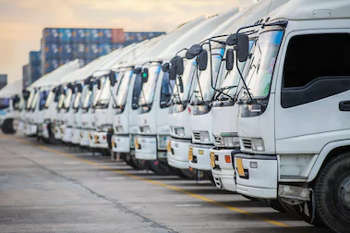An economic assessment tool specially developed by Government advisers has shown the benefits from urban consolidation centres (UCCs) - such as reduced congestion, lower road casualties and improved air quality - can 'significantly outweigh' the costs.
UCCs are logistics facilities situated close to the area they serve where goods are dropped off and packed onto suitable commercial vehicles for delivery to their final destination.

On behalf of the Department for Transport, the Transport Systems Catapult (TSC), developed an economic assessment tool that estimates the cost and benefits of a logistics consolidation model. It applied this tool to the University Hospital Southampton Foundation Trust as a case study.
Data showed that by moving towards consolidation and using the UCC operated by Meachers Global Logistics in Southampton, deliveries to the hospital could be reduced from 867 a week to 25 a week - cutting congestion, emissions and casualties, as well as making efficiency savings.
TSC said it was able to show benefits can 'significantly outweigh the costs' through the model that shows the financial value of the benefits for all stakeholders.
Southampton is one of the UK cities and towns required by government to bring nitrogen dioxide concentrations within legal limits in the shortest possible time.
The TSC said: ‘The study suggests that UCCs can help towns and cities, like Southampton, meet their air quality obligations through the reduction of goods vehicle miles in urban areas.
'Financial viability has been the main barrier to successful adoption, with UCCs often requiring public sector subsidy to maintain operations.’
Andrew Traill, the TSC’s principal technologist for freight and logistics also acknowledged that cost was an issue but added: ‘As towns and cities face increasing congestion alongside the need to reduce harmful emissions and other local environmental impacts, “outside the box” thinking like this needs to be reconsidered.’





